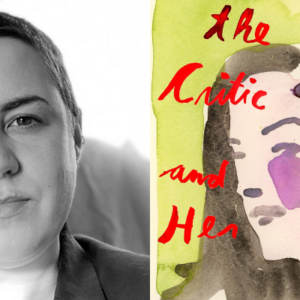
She was already underwater when the sun came up. Twenty-five meters down, the first light hit the rose garden in patches, like a hand-colored photograph. Plated clusters of Montipora resolved from gray to green, brown fingers of Acropora blushed pink. The fish woke up, like birds. You could hear them snapping and grunting, crunching the coral between the steam puff and gurgle from the regulators. A trio of black-tipped reef sharks passed in the distance, propelling themselves with subtle, muscular flicks. They ignored the divers, who were so close to each other that Nathalie could feel the surge from Raffi’s fins. She put space between them, then indicated some coral outcroppings a little farther on, where the coastal shelf descended, then dropped off sharply to blue.
Nathalie would have preferred to dive alone. This was her favorite hour of the day, when her time was completely her own; something was lost, even with Raffi. But things were done correctly at CRIOBE, and she was scrupulous about protocol, as well as the research station’s equipment. No pleasure on earth was worth risking the place she’d made for herself here. They backpedaled a moment to admire a school of yellow-tailed demoiselles wake up and start to feed. The damselfish avoided the white patches among the green, yellow, and purple of the reef, but the bleached coral wasn’t dead. It was only empty. Either the tiny algae that lived in its transparent tissue would return, restoring the coral’s healthy color, or that living tissue would shred away and die, leaving the calcareous skeleton.
Raffi touched her shoulder: a moray was emerging from underneath a rock. It was the same muddy green as the kelp and she had to admit that she wouldn’t have seen it without him; Raffi had that gift for spotting what other people missed. The jaws of the eel gaped and closed, gaped and closed, his tiny eyes perhaps as useless as her own without the mask. An iridescent bluestreak cleaner wrasse darted toward his head, safe in its knowledge that the moray wouldn’t eat its sleek servant. Jardin des Roses was a beautiful name, but not entirely accurate. The Montipora looked more like mushrooms than like roses, and there was nothing cultivated about the landscape beneath them. It looked haphazard, but everything existed in precise balance with everything else; the plan had arisen according to the needs of each creature there. And not only the creatures. She really believed that the beauty was mathematical in nature, derived from the cycling of nitrogen and carbon through the living and nonliving components of the reef. The idea that it could be gone in a few years was sick.
When they came up there was only 20 bar left in her cylinder, and ʻŌpūnohu Bay was dark turquoise. Small waves whipped the surface, which had been still and silver on the way out. A sleek white cruiser was approaching the mouth of the bay, while a tug-style supply vessel she didn’t recognize, RV Persephone, sat at anchor inside the pass, under a Danish flag. Vertical cumulus clouds sat over the water like greater ships, throwing blankets of shadow on the steep, bottle-green hills. Mount Rotui rose up in front of them with its elongated ridge, as if it had been dragged toward the coast. There was some local legend about theft.
“Seven-forty,” Raffi said.
“Shit.” She was giving an informal tour to a research analyst from Pew, on vacation in the area. She thought briefly about having her exemplary German student, Gunther, start the tour, but these relationships with funders were crucial, and it really did have to be her.
They were chugging slowly toward the underpass, where the channel ran under the road to the station. Two children were standing on the shore, one eight or nine, the other barely more than a toddler. They were stooping and straightening and then stooping again, picking at something in the sand. Shells maybe, or unlikely treasures from the piles of sun-and salt-bleached plastic chips that washed up with the tides. Once she had picked a single diamond earring off a ledge, shed by some unlucky tourist; on shore another time a plastic baby, the size of a thumbnail, brittle and pink, its features washed away. The older girl shaded her eyes to watch their boat coming in. There was nothing remarkable about a couple of divers returning on the skiff, and so she was surprised to see the younger one waving her arms over her head. Demoiselles, like the fish, traveling in a shoal—free, this early in the morning, from chores. Perhaps that was what made them so ebullient and friendly. She waved, and they redoubled their greeting. “Professeure! Professeure!” Jumping up and down as if they’d won the lottery. Local girls whose parents ran fruit stands, fished, cleaned hotels. What did they want with her?
She thought she would start the tour outside, show the analyst the bay and say something about the dive this morning, before moving into the lab. If you were used to an air-conditioned office in D.C., you might enjoy the view of the mountains from the thatched Polynesian pavilion called fare pote’e. The American scientists at the station next door had a larger one, where they often took photographs, perhaps because they liked to think of themselves as more locally attuned than their French counterparts. Her friend Marie-Laure called the pavilions “un peu Disney.”
Raffi guided the boat under the road and into the green channel. They anchored at the CRIOBE dock. It was ten of eight, and they worked quickly, unloading the gear and hosing down the boat. She had a dry shirt and shorts in her dive bag, and she pulled them on over her damp suit, running her fingers through her wet hair. No time for coffee, but at least the delay would be short enough to excuse.
But the girls had followed them. They’d crossed the road in record time; the older one was now scampering alongside the channel, pulling the baby after her. She was wearing a red Hello Kitty tank top and a ruffled denim miniskirt with rick-rack edging, a pink headband that secured a smooth topknot.
“Telephone for you! At the reception!”
Now she recognized them—the older, at least, was a relation of Veronique, who worked at the reception. Tahitian, emaciated, of an indeterminate but advanced age, and dressed always in bright local fabrics, Veronique nevertheless seemed, in her sour disdain for nearly all the lab’s employees, more French than anything else. It especially irked her when the friends or family members of the researchers who’d failed to reach their mobiles called the station, and Nathalie wasn’t surprised that she’d sent these emissaries rather than venturing out herself.
“An emergency,” the girl continued politely in French. “She’s waiting.”
Whether the “she” who was waiting was the caller or Veronique, Nathalie wasn’t sure. But there was no reason to panic, except with regard to the funders. She thanked the child, who smiled shyly from under her heavy thatch of bangs, and texted Gunther. Then she picked up her cylinder and BCD.
“Leave it,” said Raffi, “in case it’s Pia.” He spoke French with Nathalie but English with her daughter, who’d learned the languages simultaneously and had no preference. Nathalie had remarked on it when she first heard them, because French was certainly easier for Raffi. But Pia said pointedly that Raffi had referred to French as a “shit language” and would rather speak English. She said it with a sidelong look, as if she thought she might offend or shock her mother. Nathalie had long since learned not to react to that kind of thing. More likely, Raffi was just using Pia as practice for his tourists.
One afternoon stuck in her mind. She’d happened to be standing outside the reception and had seen them coming in from a dive on the boat. Pia had been wearing a black Speedo, a modest suit that nevertheless showed every detail of her body, the high breasts, the oval of tanned thigh and slice of buttock. They were struggling; she’d been standing carelessly, and he was telling her to sit down; while Nathalie watched, unobserved, Pia covered his eyes with her hands, laughing, forcing him to push her off.
Regarding Pia, she trusted Raffi completely. It was her daughter’s behavior she worried about, because that was the way she herself had always been. It wasn’t age so much as knowledge; she fell in love because a person knew something she didn’t.
__________________________________
From The Limits by Nell Freudenberger. Reprinted by permission of Alfred A. Knopf, an imprint of the Knopf Doubleday Publishing Group, a division of Penguin Random House LLC. Copyright © 2024 by Nell Freudenberger.


